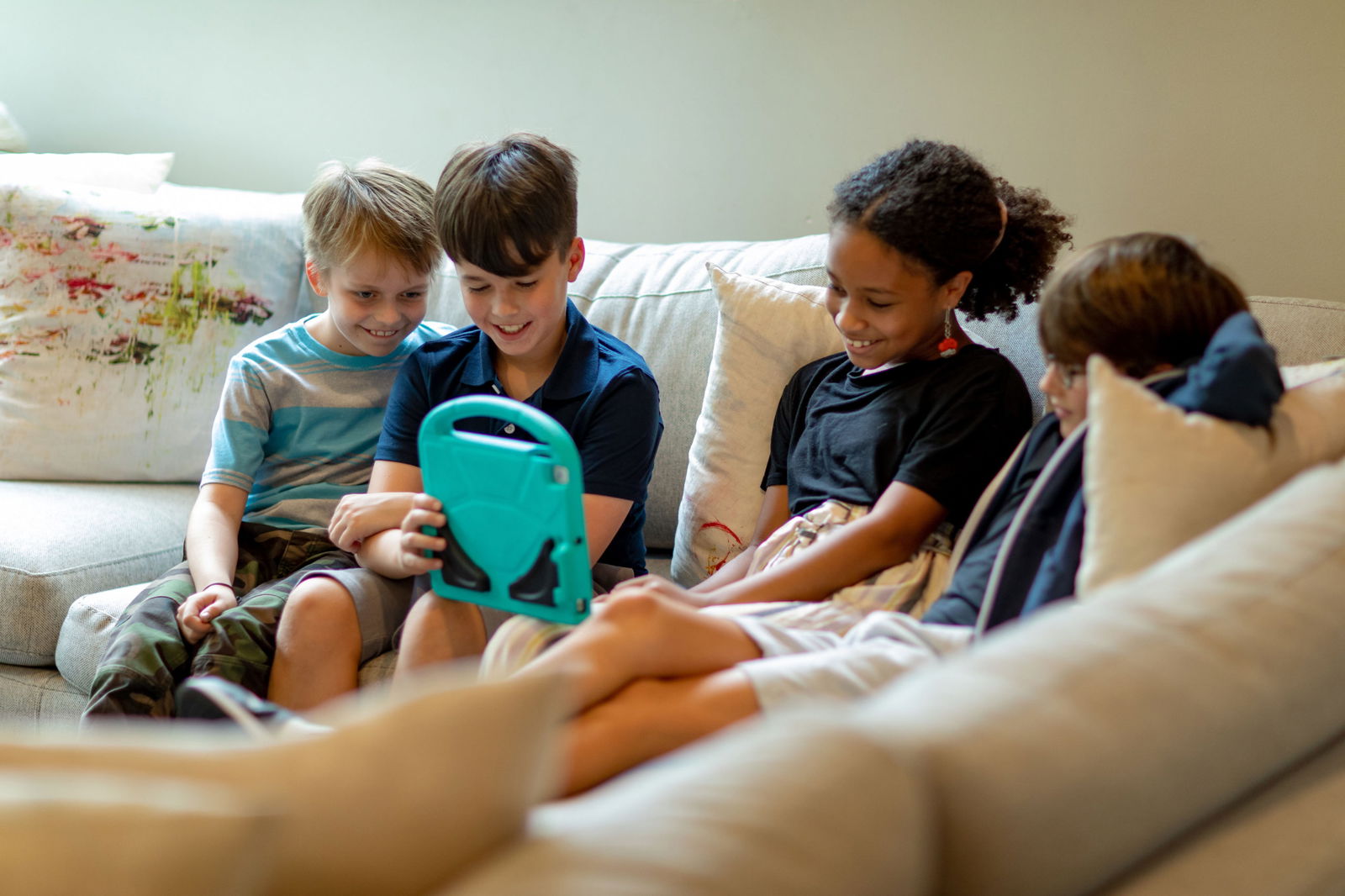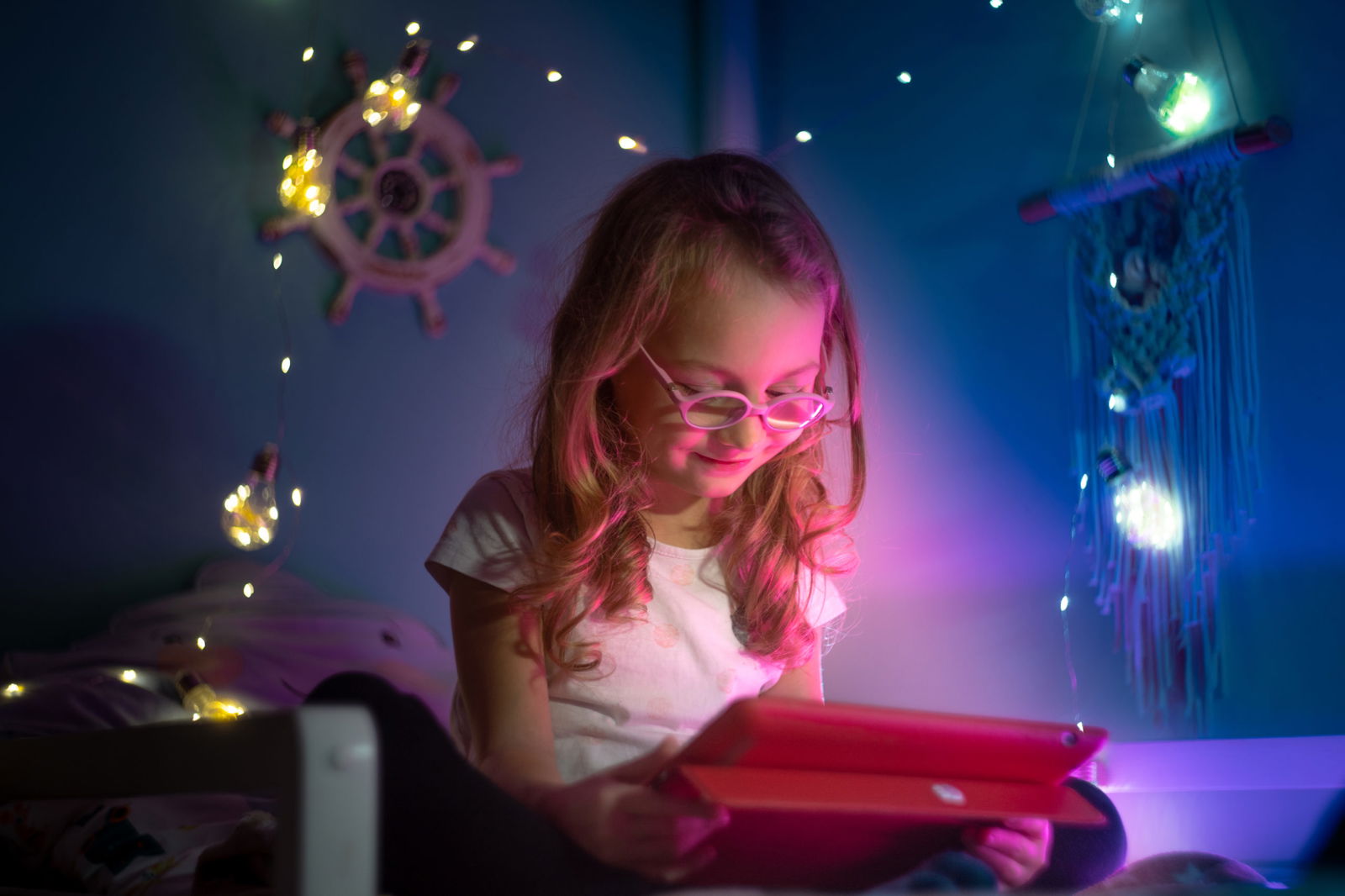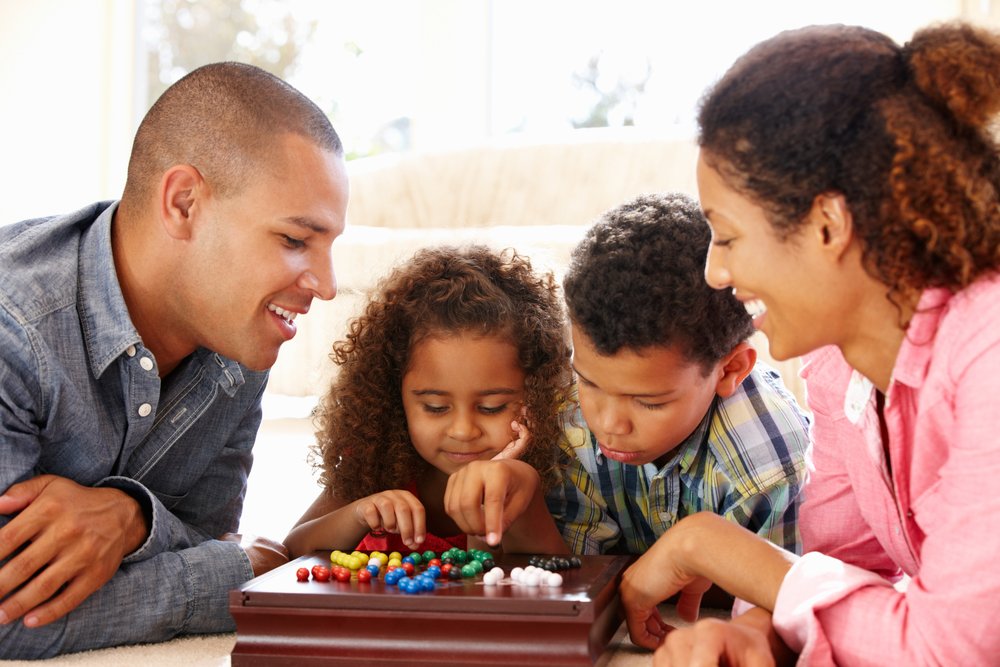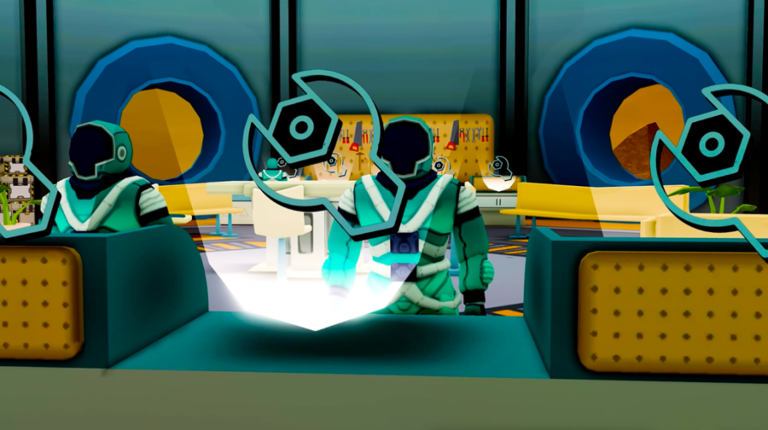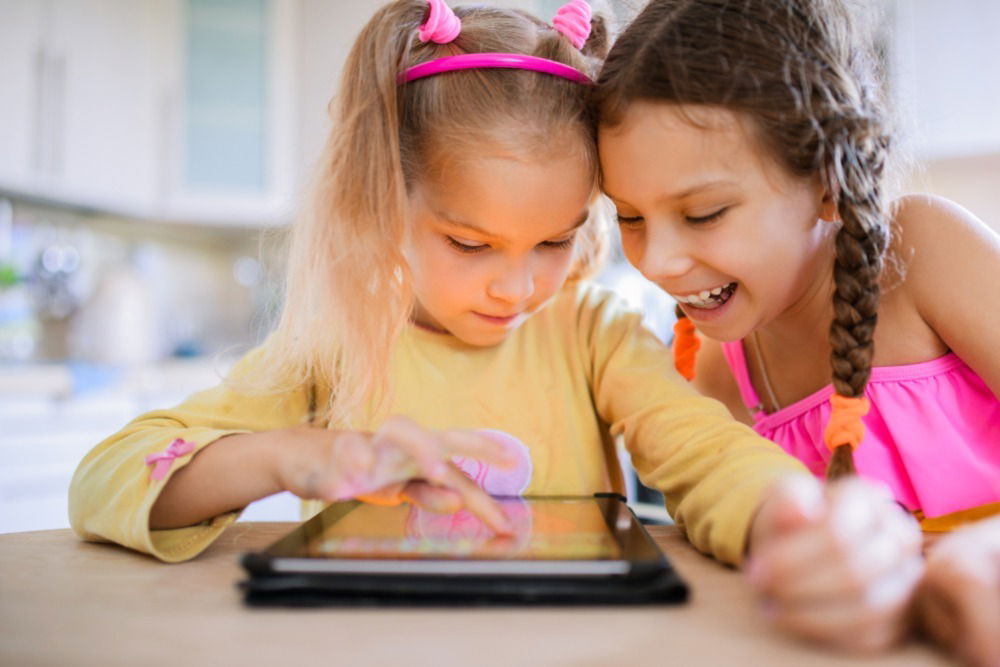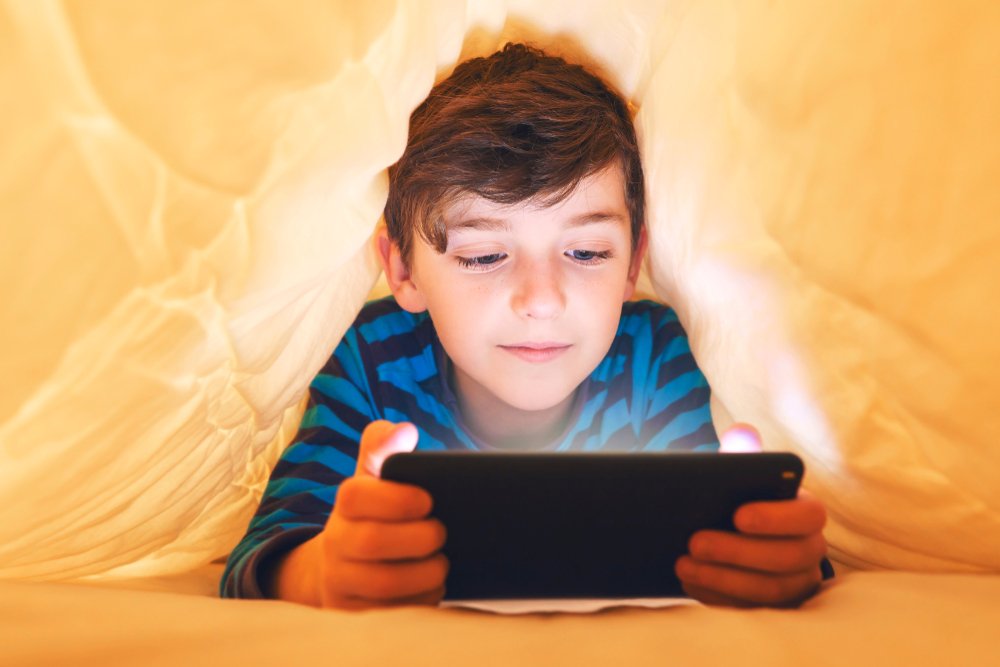Is Roblox the New Playground? Exploring the Benefits of Play-Based Learning in Digital Spaces
When you hear play-based learning, you probably think of your child playing with open-ended, educational toys. Or role-playing social situations with friends on the playground. But what about screen time? Can video games be considered play-based learning?
Play-based learning happens when children take the lead in how and what they learn. You allow them the freedom to explore and play on their own and the learning comes naturally.
These days, more children are connecting with their friends through digital play. And Roblox has become one of their favorite ways to connect with friends in the online world.
Though untraditional, you don’t have to feel guilty about this online time. This digital play may feel like a waste of time, but your child is learning critical developmental skills. Even on Roblox. Let’s explore why this type of play isn’t just fun, but also vitally important to your child’s growth and development.
Why Do Kids Need Digital Spaces for Play?
As much as our children love us, they’d often still rather spend their free time with friends. Of course, we were the same way at their age. It’s a natural side effect of growing up.
But why is it that children would rather spend time with peers than adults? According to prominent psychology researcher Peter Gray, it’s because children are more likely to look to their peers as role models.1
Though this may sound unwise to you as parent and protector of your children, this is an important and crucial step in childhood development.
Gray’s current research and writing are focused on children’s natural ways of learning and the life-long value of play. And in his article, The Culture of Childhood: We’ve Almost Destroyed It, he examines the importance of children spending time together away from adults. This article is eye-opening and definitely worth the read.
It has also inspired this article about play in digital spaces. Like Gray states, as time continues to evolve, so do the ways children connect with each other. And for today’s kids, online spaces, like Roblox, have become their playground.
Digital platforms are where they can meet up to play and explore. It’s a place where they can examine their role in society. These spaces are the savior of our children’s culture. Why? Because online spaces give kids back the freedom and space to connect with friends outside of constant adult supervision.
Benefits of Play-Based Learning in Digital Spaces
When you were young, you probably learned more from your friends’ mistakes (or your own) than from your parents’ sage advice. According to Gray, this is because “children are biologically designed to pay attention to other children in their lives, to try to fit in with them, to be able to do what they do, to know what they know.”1
Does that make you uncomfortable? We get it. You want to save your child from making those same mistakes you made. And you can certainly still share your wisdom with them. But just like you, they’ll learn best by experiencing these things on their own.
But it’s not all worries and safety concerns. Connecting with friends through digital spaces can help your child learn many real-world skills. Here are some of the top benefits your child can gain from digital play.
1. Develop tech skills
The internet gets bigger by the day, making it difficult to keep up with. And your child can’t keep up if they aren’t on it. Allowing your child time online helps them become tech-savvy. They’re exposed to new software, coding, online etiquette, and more.
This doesn’t mean they should figure it all out on their own — they still need your help. In the same way you taught them how to cross the street, you can teach them how to navigate the dangers of being connected. Giving them your support “enables children to engage in a wider range of online activities, improves their skills, and reduces their exposure to risk.”2
2. More freedom and autonomy
Playing and learning inside of digital spaces gives your child more autonomy over their time and learning. And kids crave this. This freedom helps them learn how to navigate the world and better prepares them for the many tasks of adulthood.
Bonus — autonomy in digital learning can boost your child’s creativity. Much like creating games on a playground, kids create new games and experiences using their own rules. This freedom takes those objective-free sandbox-style games to a whole new level of learning and imaginative play.
3. Introductions to new ideas
Digital play-based learning helps your child discover new ideas about what’s possible on and off the screen. There’s a world of learning out there — and your child has access to all of it.
They’ll encounter people who have vastly different life experiences. Truths will be questioned. They’ll see “rules” bent or broken — with both positive and negative consequences. This out-of-the-box learning and rule-bending gives them a more enlightened point of view than learning and playing with adults.
4. Socializing away from adults
We know this sounds scary. Giving your child freedom to socialize on the internet without adult supervision? But, we promise, it’s not as crazy as it sounds.
Your child still needs you to guide them and show them what’s appropriate and safe. They need to know how to watch out for online dangers. But once they’ve learned this from their best guide (you), set them free to learn on their own.
We recommend occasionally playing with your child to strengthen your bond (and even learn a few new things yourself). But then, give your child some time to be a kid with their friends. A space where they can be silly and make lame jokes. Maybe even talk a little smack. But most of all, they need space to have fun with their friends as they learn.
This is one of the best ways for your child to improve their social understanding, empathy, and emotional intelligence.
The Best Digital Spaces for Online Play and Learning
We could talk about the benefits of online play all day. But where are the best places for online learning and play?
1. Roblox
Roblox is an online gaming platform that offers your child millions of games to play. And as one of the most popular platforms, it’s a great way for your child to play with others. Inside Roblox, your child can learn and practice:
- Reading
Between game instructions and in-game chat, there are plenty of ways Roblox motivates your child to improve their reading skills.
- Communication
In many games, players must work together to create something or reach their objectives.
- Empathy
Online interactions are just as important as real-life ones. Your child can practice and explore the importance of interacting with kindness.
- Math
With Robux and in-game currencies, addition, subtraction, multiplication, division, fractions, and word problems are built into many of Roblox’s mini-games.
Roblox bridges curriculum and online learning to give your child a fun place to learn and communicate with friends.
2. Kinjo
Kinjo aims to bring more learning to the activities your child loves most, and they’re starting with Roblox. As we mentioned above, there’s a lot of learning to be had inside Roblox. But there are also a lot of not-so-great games to navigate.
With Kinjo’s app — Kinjo — Play Smart and Earn— your child can explore the best games Roblox has to offer. They’ll earn Kinjo coins for choosing challenging games full of learning. And then they can redeem those rewards for cool gear or even Robux.
With Kinjo’s help, your child can be directed to the best games for learning
- Collaboration
- Complex problem-solving
- Entrepreneurship
- Creativity
It’s a great way to give your child more autonomy while helping them learn the art of making better online choices.
Download Kinjo — Play Smart and Earn to Unlock More Learning in Roblox!
3. Minecraft
Minecraft is one of the best educational games out there. Inside this online building platform, your child can learn the fundamentals of programming, teamwork, problem-solving, project management, and more.
Minecraft fosters creativity and social skills as your child and their friends build together. It’s a fun way to nurture your child’s passion for online play while propelling their learning.
4. Outschool
Outschool offers your child thousands of online learning courses. These interest-driven classes are a simple way to supplement their education while also building friendships with their new, online classmates.
There are all kinds of classes, including many that feature your child’s favorite gaming platform. Check them out and find a class your child will love.
5. Massive Multiplayer Online Role Playing Games (MMORPGs)
MMORPGs are video games where your child can role-play with a large number of people all at once. World of Warcraft is a popular example.
MMORPGs challenge your child to explore and learn through active experiences. For older children, MMORPGs are prime learning spaces — “the focus on motivation and collaboration and the correlation between them” is an essential component of online learning.
6. Multiplayer Console Games
Multiplayer console games (on an Xbox, Playstation, or Nintendo Switch) give your child a space to play online competitively or as a team to achieve a goal.
Multiplayer games that are popular right now include Fortnite, Mario Kart, Super Mario Bros, Fall Guys, and Animal Crossing. But there are many, many more. The great thing about these games — you can play them together in your home or you can play with others around the world. Multiplayer games improve your child’s communication and team-working skills, while also building relationships with friends.
Kinjo Can Help Your Child Learn and Play Online
Each day your child grows, so does the internet and its reach. It’s essential for your child to learn these virtual ropes to succeed in adulthood.
With Kinjo, you can bridge the gap between mindless play and learning. You can feel confident giving them more freedom in their gaming choices. And you can witness the learning as it happens.
Visit the app store today to give your family the best in online, play-based learning with Kinjo — Play Smart and Earn.
Resources:
- The Culture of Childhood: We’ve Almost Destroyed It – Peter Gray, Ph.D.
- Done right, internet use among children can increase learning opportunities and build digital skills – UNICEF
- Play and Learn: Educational MMORPGs in the Classroom – Foundations of Educational Technology

